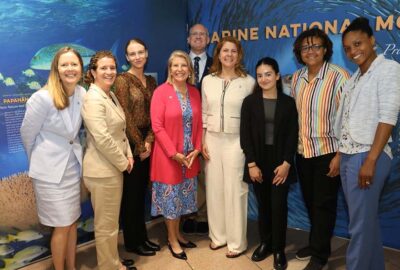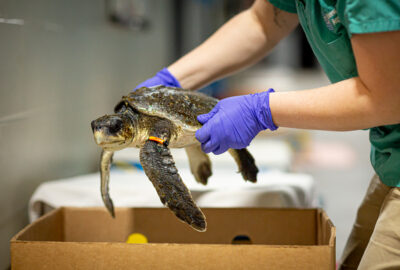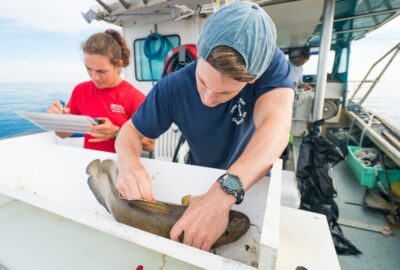Long Overdue Environmental Justice Outcomes Take Center Stage at COP27
Ocean champions continue to advocate for sustainable fisheries, renewable energy, and blue carbon.
By New England Aquarium on Monday, December 05, 2022

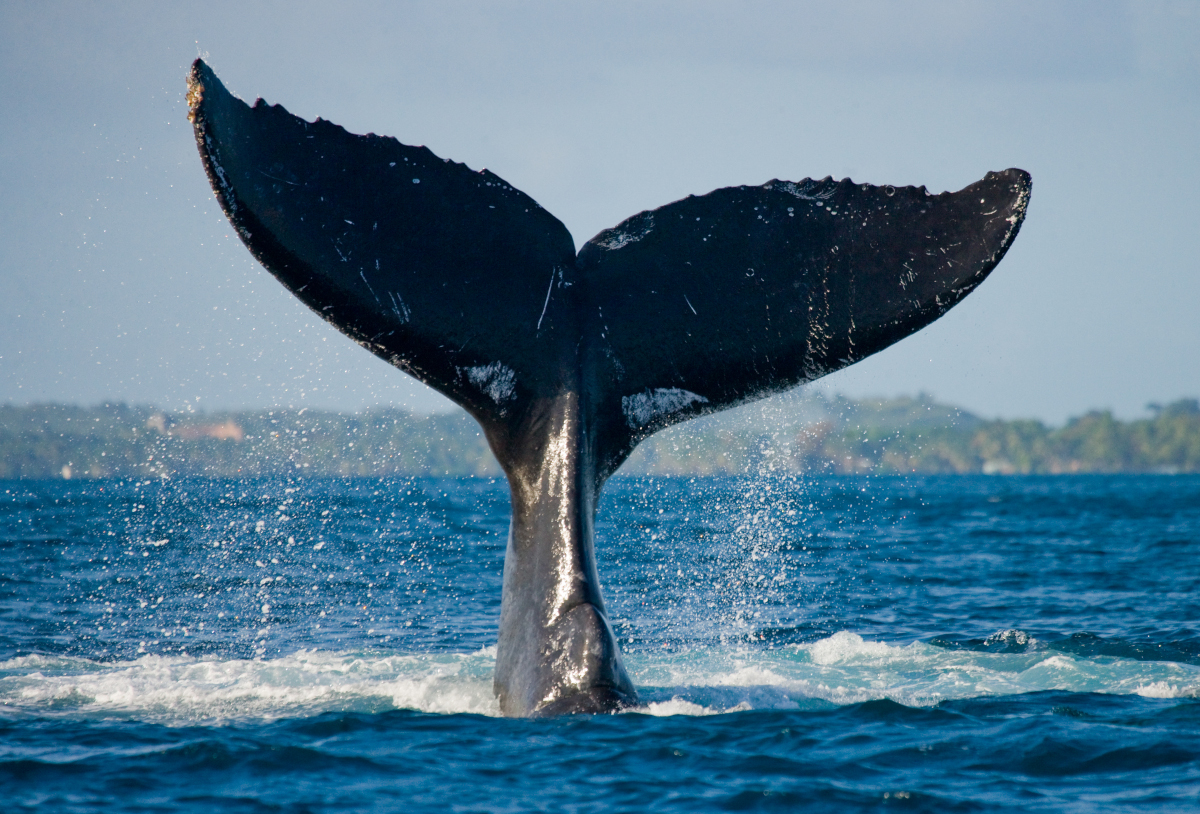
Recently, leaders of United Nations member countries around the globe gathered in Egypt at COP27, the United Nations climate change summit. There, major discussions on the future of the fight against climate change occurred, including negotiations for measurable ocean action.
The Aquarium has an interest in this as we have a front-row seat to the impacts of climate change, both along our stretch of waterfront on Central Wharf in Boston and extending into the rapidly warming Gulf of Maine. We know that the most pressing challenge of our time is this climate crisis, and the ocean has an important role to play in both mitigating and adapting to the effects of climate change. That’s why we were encouraged to see ocean-climate action considered in the evolution of the decision text, but disappointed that its mention in the final decision text was limited to the structure of subsequent dialogues.
The ocean absorbs about 30 percent of the carbon dioxide we pump into the atmosphere and about 90 percent of the excess heat that’s trapped by those gasses; a report from the High Level Panel for a Sustainable Ocean Economy estimated that 21 percent of the world’s requisite greenhouse gas emissions reductions could come from the ocean in some form. The ocean needs protection as a critical habitat for marine life, a source of food and livelihood for people around the globe, and as a source of solutions as we confront the challenges of climate change.
COP27 culminated with an agreement by the parties of the Sharm el-Sheikh Climate Change Conference to establish a dedicated fund for “loss and damage” as part of this year’s decision. This long overdue environmental justice outcome means that the governments of vulnerable countries will no longer have to foot the bill for harms—both economic and non-economic—that they increasingly face due to climate-change-related disasters such as droughts, flooding, and hurricanes.
In tandem with the focus on loss and damage and climate finance, discussions on ocean-based solutions took place at the Ocean Pavilion. At the previous summit in Glasgow, COP26 promised a renewed focus on the ocean as a source of opportunity, and the subsequent 2022 Ocean & Climate Change Dialogue highlighted some opportunities unique to ocean-climate solutions, but the final decision text reflected minimal progress toward harnessing ocean solutions. This was not for lack of ocean-based advocacy, however.
At the Pavilions—side events held at COP27 dedicated to topics of interest around conservation—captains of industry, visionary entrepreneurs, and community leaders from across the globe presented a bevy of ocean-based solutions for helping people, protecting the climate, and conserving biodiversity.
For this year’s conference, Sarah Reiter, Director of Ocean Policy and Head of our Observer Delegation, worked with Vermont Law and Graduate School COP27 student delegate, Logan Keen, as he traveled to Egypt to learn more about the role of the ocean in the international climate negotiations. We caught up with Logan for his three main takeaways related to COP27 discussion of ocean-climate action below.
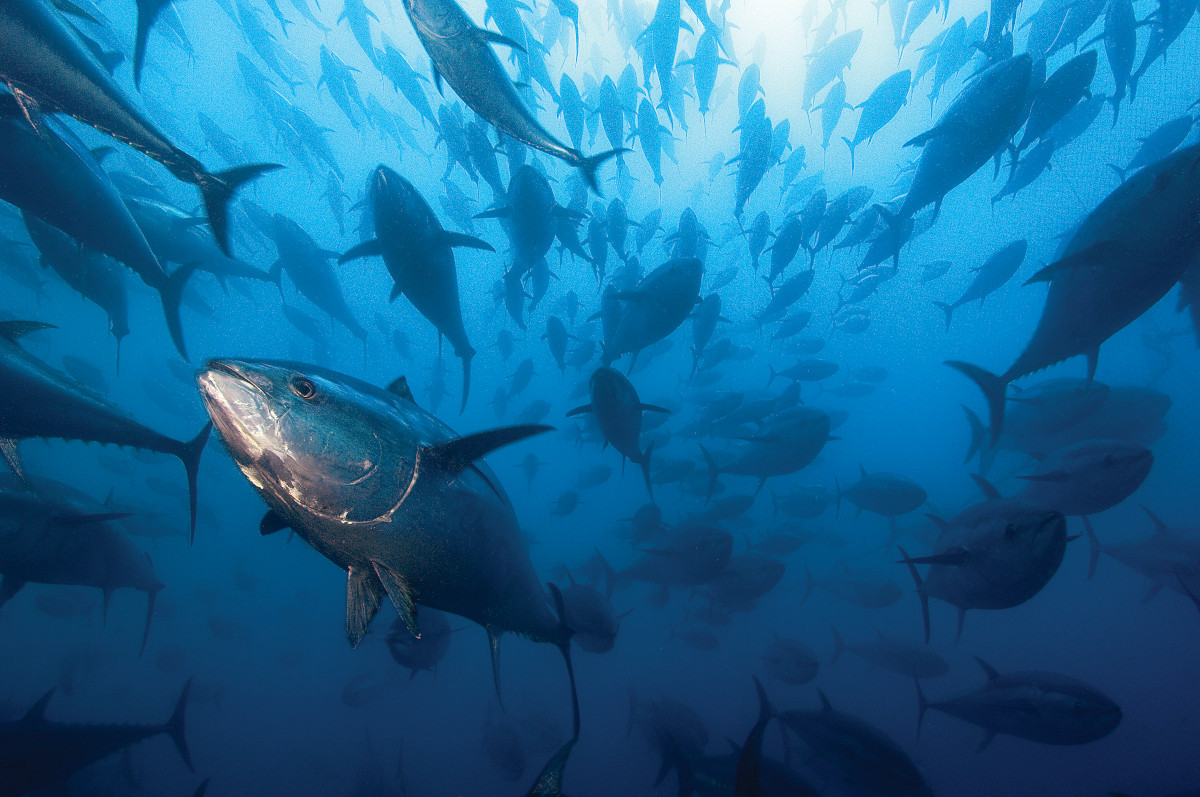
Sustainable fishery development
At the Resilience Hub Pavilion, Mayor Mary Jean N. Te from the municipality of Libertad in the Philippines spoke about her experience promoting sustainable fisheries through the creation of new laws and marine protected areas (MPAs). During her first term, she headed the LIPASECU Baywide Management Council (comprised of the municipalities of Libertad, Pandan, Sebaste, and Culasi). As she described it, the Council’s initiatives to curb unchecked fishing by large foreign companies have led to increased food security, ecosystem health, and tourism revenue in the area. Mayor Te has since joined the Coastal 500, a collective of municipal leaders from eight developing tropical countries committed to responsible fisheries management. Tamara Greenstone Alefaio, of the Micronesia Conservation Trust, echoed those sentiments and agreed that any successful conservation measures must be “bottom-up, not top-down.” Her organization has led a regional initiative within the Pacific islands to secure commitments from chiefs and other local leaders to conserve 30 percent of their near-shore marine resources and 20% of terrestrial resources by 2020; that initiative was successful, and currently there are plans to increase ambitions by 2030.
Renewable energy
Renewable energy, too, was a focal point. During a panel at the Moana Pacific Pavilion—the venue for many crucial ocean discussions—COP attendees heard from entrepreneur Henk Rogers on recent legislative wins for the state of Hawaii, which passed a legislative mandate for the state to commit to 100 percent renewable energy by 2045, and reflects a growing movement in other state legislatures to drive towards clean energy, including here in Massachusetts, where the state law focuses in large part on offshore wind.
Blue carbon
Finally, blue carbon was a source of discussion at the Moana Pacific Pavilion and elsewhere. Blue carbon refers to the carbon trapped in coastal ecosystems, such as mangroves, salt marshes, and sea grasses. These ecosystems offer a potential triple benefit in the face of worsening climate change: first, they offer adaptation benefits to coastal communities by slowing down storm surges; second, because marine ecosystems are up to 10 times as effective at sequestering carbon, they provide outsized benefits in terms of mitigating our emissions; and third, these ecosystems provide important critical habitats for conserving marine biodiversity. One particularly salient piece of news for coastal communities was the concept of ocean conservation credits (OCCs), which are essentially like carbon credits for blue carbon. For coastal communities, and especially island nations, a regulated OCC market would allow them to protect blue carbon ecosystems and, in return, “sell” the carbon sequestered in those ecosystems as carbon credits to nations or organizations looking to trim their net-zero bottom lines. It’s important not to view these ecosystems as pure commodities, however; they must be valued for their critical roles in food security, livelihoods, community well-being, and cultural services, not merely their ecosystem services.
At the Aquarium
Ocean-climate action, such as the work discussed above, is work that researchers at the New England Aquarium have been involved in for decades. From supporting the development and management of sustainable fisheries and supporting emerging conservation leaders globally to conducting aerial surveys on species distribution for wind development and BlueSwell, the incubator program for an innovative, sustainable blue economy, the Aquarium is committed to fostering a vibrant and vital ocean for all.
It’s clear that the ocean has an important role to play in both mitigating and adapting to the effects of climate change. Creating sustainable fisheries, committing fully to renewable energy developed in a responsible manner, and conserving critical, carbon-sequestering marine ecosystems are just a few of the ways communities demonstrate their commitment to healthy oceans. Those efforts have been locally led, for the most part, and have effectively engaged public and private stakeholders. The ocean will continue to provide a generous suite of options, the potential of which remains largely untapped. Fortunately, inspiring leaders and innovators across the globe continue to provide hope that, regardless of what the leaders of our respective countries negotiate, we can enact positive change using the ocean as a source of solutions.

